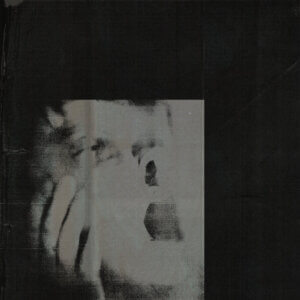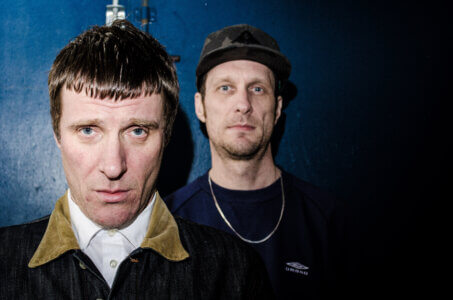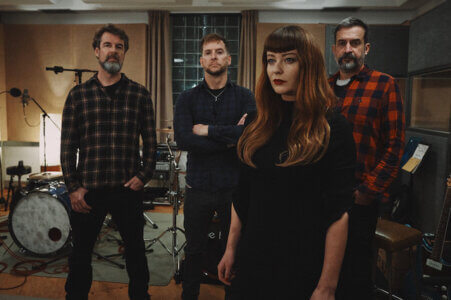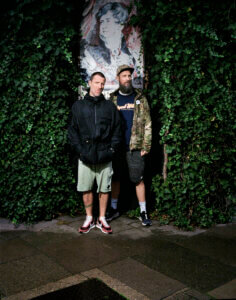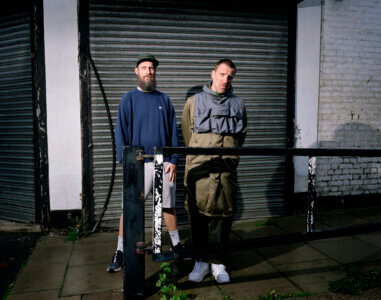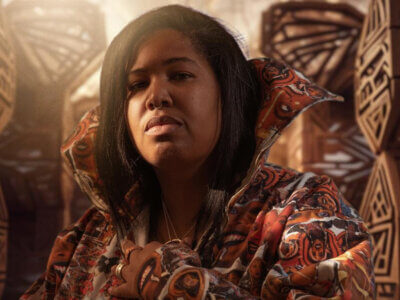Billy Nomates Isn’t Taking Any Shortcuts
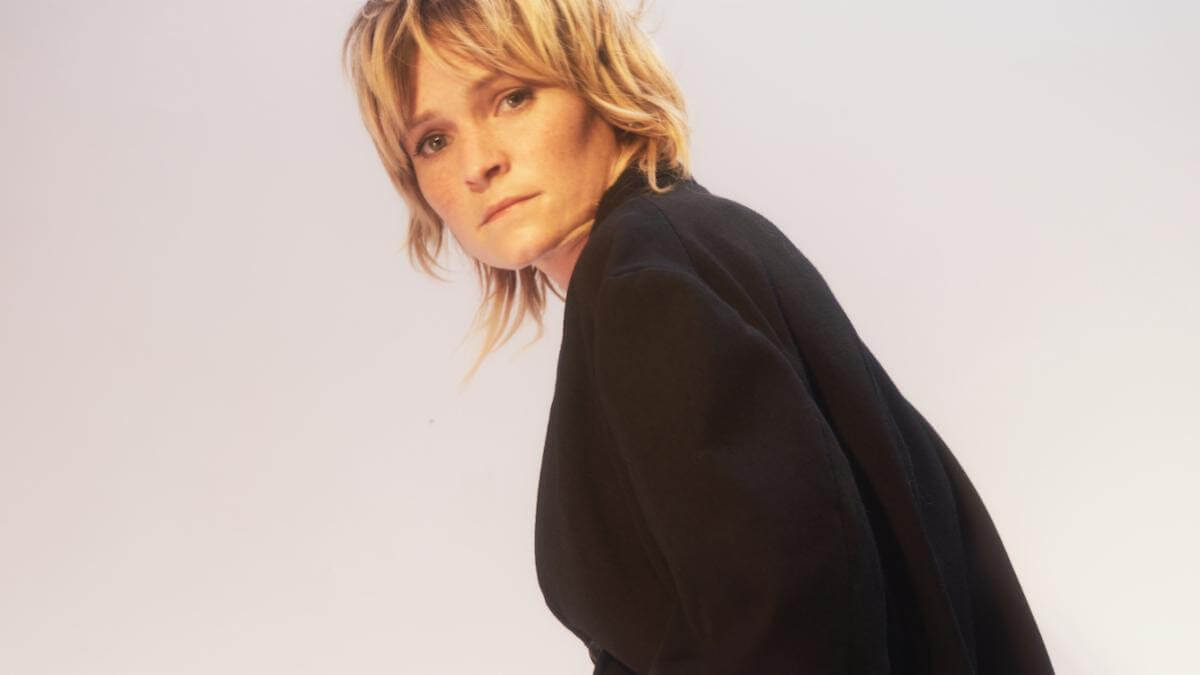
Tor Maries, the Bristol-based artist, has been busy. She has managed to condense a lot of experiences and work in the three years since the release of her vibrant and vital debut, Billy Nomates; her nom de plume. As Billy Nomates, she gave a blistering performance on “Mork n Mindy” on Sleaford Mods’ 2021 record, Spare Ribs and is set to release her second record, CACTI. On this latest release, Maries offers a fresh palette – infectious 80s synth-pop is a primary influence on the arrangements – whilst continuing to write deeply personal lyrics as she presents audiences with unfiltered self-portrait.
We spoke about the making of CACTI, changing up her musical approach, feeling vulnerable in her music and plans for a third record.
Northern Transmissions: How are you feeling ahead of CACTI’s release?
Billy Nomates: I’m ready for it to be out. At the same time, though, I’m very anxious. Very anxious. There’s definitely an excitement about it coming out but that’s masked by anxiety.
NT: I really enjoyed spending time with CACTI over the last while. You’ve had an extremely busy and prolific couple of years since the release of your self-titled debut record in 2020 which was followed quickly by the Emergency Telephone EP. Tell me about writing this album; what was the general timeframe of the writing and recording process?
BN: I started to work on songs at the end of 2021. Overall, it took about a year to make it, from the end of ‘21 to mid-2022. I also moved during that time. I spent lockdown in the Isle of Wight with my dad and went from his shed – making music in his shed, which is where Emergency Telephone came from – back to living in a flat in Bristol and wrote a little bit here and a little bit in Invada Studios.
I just sort of sketched for a while, really. But I did struggle with [writing]. The pandemic did a weird thing because I’d have days where I felt really creatively on it and then I’d have days where my brain went to absolute mush. It was frightening because I kept thinking to myself, “Ugh, remember that thing you used to do where you’d stay up all night with a track because something clicked at a particular moment and you feel like you’ve got it and you're working into the night!” Well, there was a period where I just couldn’t really do that for a while and I was really scared by that. Fortunately, it’s come back now and I’ll stay up and work on a track into the night. But, I lost that for a minute and I was a bit frightened. I don’t know if this is something all creatives have been through over the last few years but I’ve spoken to quite a lot of people who have had similar experiences. Something just happened to our brains, or some kind of weird apathy has set in and we’re all struggling to get motivated. I did have that with CACTI, but I came out the other side.
NT: Was part of that, maybe, to do with the preconceived “difficult second album”? Did you have moments while making CACTI where you were, consciously or not, adding an extra strain of pressure on yourself – pandemic aside – to come back with a statement that would be as strong as your debut album, especially because that release was so well received?
BN: Yeah, maybe. Maybe more than I want to admit. I try to think that in my day-to-day life it doesn't factor into the way I approach anything. But maybe self-consciously, I’m aware that people are going to hear the music and I’d never worked at a professional studio before. There were all these kinds of things that definitely filtered in.
Ultimately, yeah, I do feel the pressure but also I just really like progressing and changing shape. That’s the thing that interests me most as an artist. Some bands and artists don’t seem to want to do that. I suppose that’s because they do what they do extremely well and they’ve nailed whatever style they do. As a fan, you can go back to those types of bands or artists anytime because they’re always nailing the thing they can do. Whereas, I’ve never felt that way; I don’t think I nail anything, really! I like to have a go at different things. I hope there’s an element of people being like, “It’s not the first album!” so that there’s no way to compare the two. In so many ways, it’s so far away from the first album that I think the label might have been a bit worried. They signed one artist and got a completely different one on the second record!
But that intrigues me. Whatever happens after CACTI, you know, it just won’t be like what this record sounds like. The artists that make music like that are the ones that I’ve always loved. I grew up with loads of music but I always think of David Bowie – he never made the same record twice. Yes, it was always David Bowie but he never did the same thing and that intrigues me as an artist.
NT: Someone I always think of in that regard is Scott Walker. He was so good at mixing it up and keeping his fans guessing album upon album.
BN: Absolutely. Oh my God, Nite Flights! The strings on “Nite Fights”, I don’t even know what to compare them to? Total ecstasy, maybe?!
NT: In terms of how you’ve shown the changing shape of Billy Nomates on CACTI, one thing I certainly didn’t expect from the record was to hear you switching from the Sprechgesang style of delivering your lyrics to singing. What inspired that shift and how was that for you to do in the studio?
BN: It’s a really weird thing because when I think about my first album, speaking was something I didn’t do. And so, I was like, “Ok, I’ll have a go at that.” So, in some respects, I do understand why now people will think, “Oh, so Billy Nomates sings now!”
I always wrote songs that way, though. It’s just that I didn’t do it that much on the first album. I think as well, I’m a bit of a snobby cat. I felt like there was a lot of speaking music coming out and a lot of politically-driven spoken word stuff and it just made me go, “OK, let’s not do that anymore!” I do really enjoy doing that and I have always written that way but I dabbled with a different style for the first album, instead. That makes total sense to me, but for the listener I can
understand why maybe it feels like a new shape.
It felt quite natural when I was recording it. Again, I don’t know what the label really thinks. It’s definitely not what they signed! I hope it’s exciting for the label and for fans when they hear a new shape. It’s like what I was saying about my favorite artists, I love the people who you come to and not know what they’re going to do or sound like next. Even instrumentation wise, with some of my favorite artists, a song will start and I’ll have no idea what instrument is going to come in next. That’s really exciting to me.
NT: Who are some of the artists that you turn to for that feeling?
BN: Sonically, I really got into an artist called BC Camplight and his album Shortly After Take-Off from 2020. The truth is, though, I don't really listen to a lot of contemporary music. I usually end up putting on Absolute 80s and that’s always fine by me! That BC Camplight album came at the right time for me. It was during the pandemic and I could truly stop and listen. I found it really intriguing because he’s one of those artists where I don’t know what instrument is coming in next or he’ll do things with his records where he just turns the song upside down. Or you get that feeling in your tummy like when you’re on a rollercoaster. From a producer’s perspective, it always makes me go, “Fuck! I don’t know what you just did there but that was amazing!”
So, sonically, he really, really inspires me. And I’m lucky enough to have personal dialogue with him and I know that his subject matters – such as his depression – are very real and very lived. I found that I really cared about what he was singing about. His stuff is real and it’s deep. I got super into it.
Another is Ezra Furman. Her material – lyrically – conveys a truly lived experience that absolutely no one can take away from her. I find that really powerful. From a production point of view, her track, “Book of Our Names”, from All Of Us Flames, was so effective with the drum roll and different elements coming in; it’s beautifully done. Subject wise, it’s about a book of names of people who have died fighting for trans rights. It’s fucking heavy but it’s so beautifully done and it’s a voice that’s so important and I feel like nobody can do that like she’s doing right now.
NT: It’s so important for audiences to hear similar experiences in songs, especially if they’re struggling to articulate how they feel. I found that across CACTI, there’s a transparency and openness that creates a very intimate world. It makes you feel like you’re the to share your story but also lend support to whoever needs to hear it through the speakers. How is it for you, though, to access those parts of yourself and assess them in a song? Is that liberating or does it make you feel very exposed knowing people will then hear it on your records?
BN: It’s always a bit scary. I don’t really think about it too much when I’m doing it. Then when the song’s done and I hear it played back in the studio, that’s when I have a moment where I’m like, “Oh, yeah. This is going out for people to hear!” Honestly, the amount of times, where I’ve turned to Geoff [Barrow, founder of Invada Records] or my management and say, “Fuck, that’s sealed now, isn’t it? That’s gone! I didn’t mean to tell everyone that!”
I guess that’s part of the safe space you can find when you’re recording. You think that it’s just me and a few people hearing it because, for a long time, that’s exactly what it is while you’re working on a track. You get really comfortable with those few people. My friend Billy says, “You get used to standing butt naked in a room with a few people.” That’s exactly what it feels like. You forget that that image is then going out to the rest of the world.
It’s always terrifying because sometimes I do hear things and cringe a little bit. But equally, I would cringe more had I not said it how it was. If I danced around it or was flowery about it because that’s not who I am. That would probably be worse, so what’s my alternative?
In those moments, you’re in a bit of a corner. Music is a place where you just cannot lie and so you may as well lean into that to the fullest degree. And by keeping it upbeat or keeping it infectious with the melodies and arrangements, you know, I can’t remember who said it but I think of the quote, “Sing the blues if it makes you happy.”
NT: With social media these days, in some circumstances, it’s easier for a fan to have access to their favorite artists. Have you had people contact you about their experiences or shared experiences that they’ve heard in your songs?
BN: Yeah, I have had that, especially after “blue bones (deathwish)” came out. That seems to be the one people are deriving their own meanings from and put their own experiences on to. I do feel the responsibility of that because it’s huge for someone to get in touch and say that they’ve just been through cancer treatment and “blue bones (deathwish)” was the thing that got them up in the morning. That’s fucking big and its heavy, but it’s an absolute pleasure and privilege to have someone hold something I’ve written so close to them.
NT: Do you have a favorite song or lyric from the record? Maybe something you hope listeners hold on to when they hear the record?
BN: It’s funny because, and I know excited is a weird word to use, I feel that there’s a sadness to CACTI and it’s a hard thing to sell your sadness. You don’t want to sell it, but it was very important to me that there was a sad undertone to the album because, at the end of the day, I’ve had some sad experiences in my life.
What do I hope people see or feel from the record? If you’re in a place of feeling or dealing with depression or a situation has left you feeling sad or a bit detached, then maybe CACTI is the record for you. I say that because it does deal with those emotions and experiences but it also says that you’ll get through and survive it. I can have a song like ‘spite’ at the end of the record and also have a song like ‘cacti’ which really leans into feeling all those things and really just goes, “Yeah, I am all these things. Fuck it!”
I hope it does address that and it doesn't shy away from those feelings because they’re part of surviving as a human. Sometimes you have to lean into the extremes of sadness and all the rest of it to make it through to the other side.
NT: Have you already started thinking about a third record?
BN: Funnily enough, I actually have. Even though it’s a busy time right now, it’s also been sort of quiet. I sketch in my free time at night, which is a good sign because, like I was saying, that doesn’t always exist for me these days. I’m trying to lean into that at the moment.
Pre-order CACTI by Billy Nomates HERE
Latest Reviews
Tracks
Advertisement
Looking for something new to listen to?
Sign up to our all-new newsletter for top-notch reviews, news, videos and playlists.


